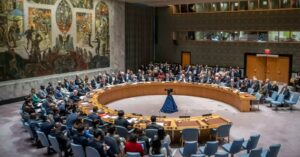What impact will the “America First” policy have on international relations during Trump’s second term?
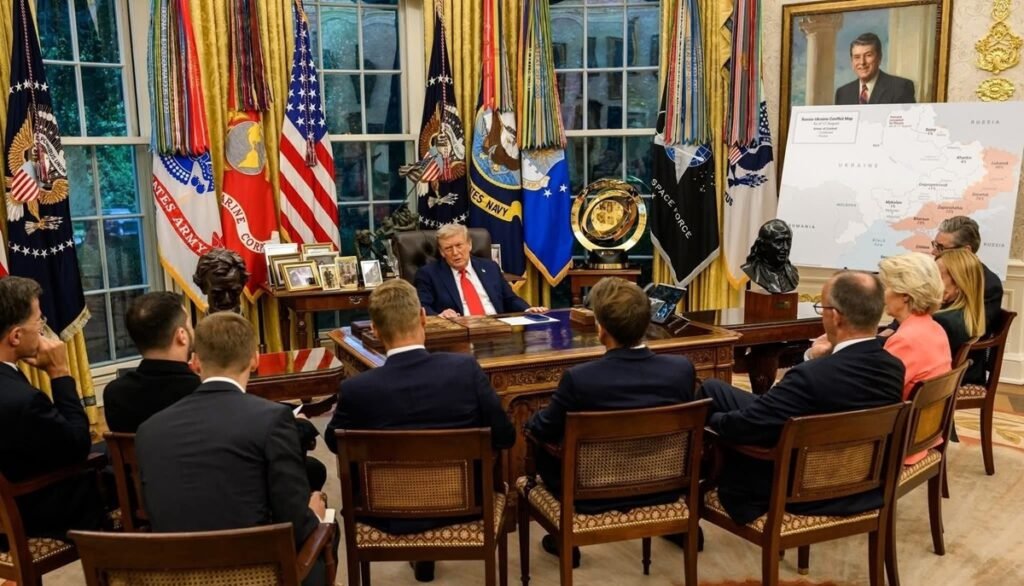
introduction
Donald Trump emerged on the American political scene in 2016, achieving a surprise victory in the presidential election. His rise to power marked a significant turning point in US foreign policy, sparking much debate and controversy. One of Trump's most prominent calls was his "America First" policy, which centered around the concept of "Make America Great Again." This policy was not merely an election slogan; it embodied a comprehensive vision aimed at reevaluating the United States' international relations.
Under the umbrella of the "America First" policy, the Trump administration has adopted a distinctive approach in its dealings with traditional US allies. This strategy has led to a rethinking of decades-old alliances, reinforcing a sense of division between the United States and its allies. For example, the focus has been on trade issues, with Trump criticizing existing trade agreements as unfair, viewing them as a threat to America's national interests. This approach has directly impacted relations with major powers such as Canada and the European Union.
There were also clear implications for defense policy, as Trump demanded that NATO allies increase their defense spending, leading to tensions and debate over military commitments. The new policy was not limited to the economic and defense dimensions, but also included shifting trends in areas such as the environment and immigration. Thus, the "America First" policy provides a framework for understanding the challenges and opportunities the United States faced during Trump's term, and determining the extent to which these changes impacted international relations during that period.
Trump's Impact on Relations with the European Union
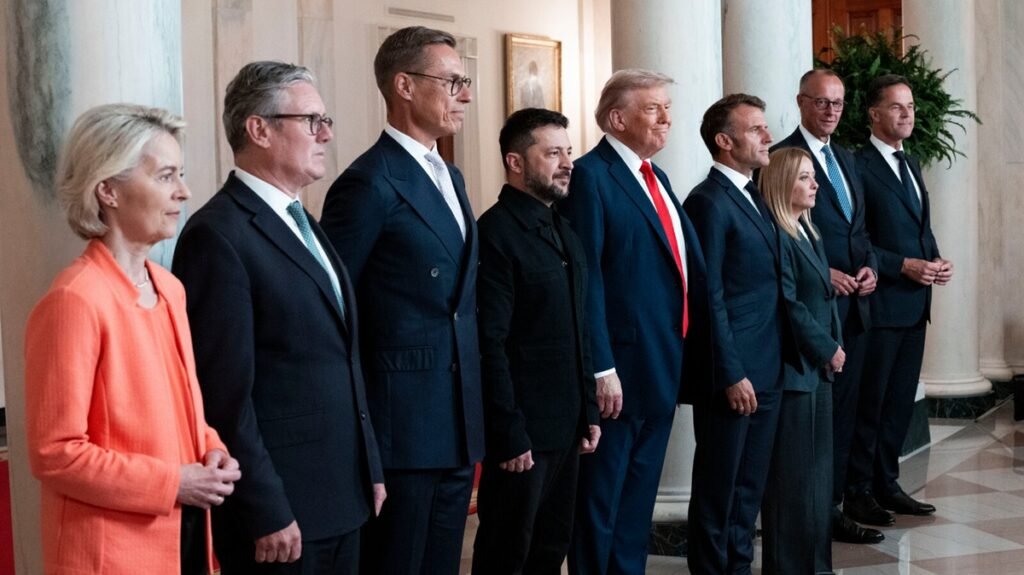
During the current term of President Donald Trump, there has been a marked shift in relations between the United States and the European Union. His administration has adopted an "America First" policy, which has negatively impacted bilateral relations, particularly through the imposition of trade tariffs and economic sanctions. Trump's trade policy was based on the idea of protecting domestic industries, leading to the imposition of high tariffs on imports from European countries. These steps have sparked significant tensions, as European countries view these tariffs as an attack on the economic interests of EU member states.
Trump has championed the notion that the United States bears the brunt of NATO's security costs, leading him to criticize European countries for not spending enough on defense. This criticism has prompted European countries to reassess their security commitments, but it has also led to complex political alignments. The "America First" policy could threaten the shared norms upon which US-EU cooperation is based, impacting diplomatic relations between the two sides.
Moreover, relations have also been affected in multiple areas, such as climate and foreign policy. The US withdrawal from the Paris Climate Agreement exacerbated existing gaps, as European countries sought to strengthen climate cooperation in the absence of US leadership. This has created clear tensions, contributing to a deterioration in trust between the United States and its European allies. Overall, Trump's policy toward the European Union has been characterized by tension and conflict, negatively impacting bilateral cooperation at various levels.
Relations with Japan under Trump's policy
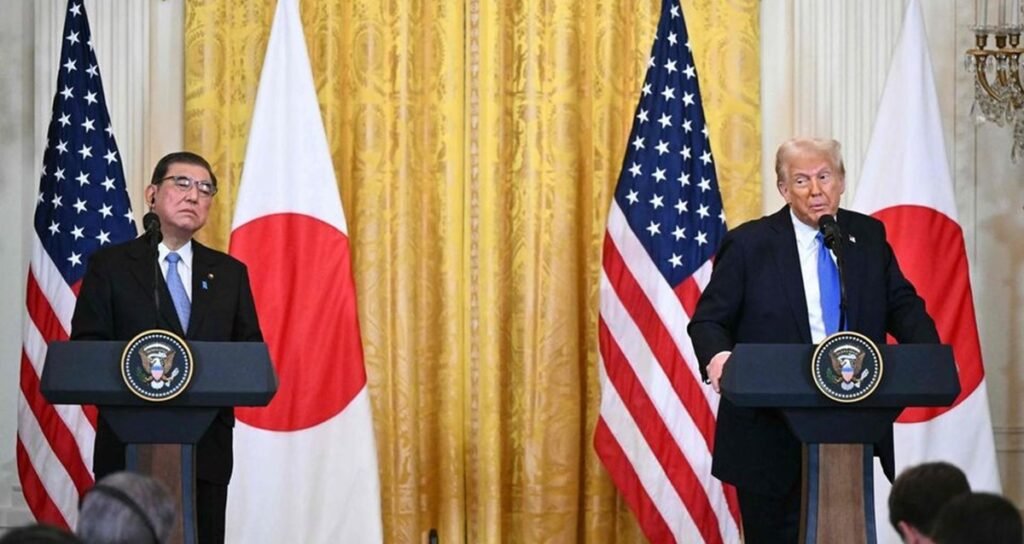
US-Japan relations were significantly affected during Trump's second term as a result of the implementation of the "America First" policy. Trade issues emerged as a major focus as the United States sought to reduce the trade deficit with Japan. This was manifested in pressure on Tokyo to make concessions in trade talks, with the administration proposing new measures to address the trade imbalance. This push for greater balance was not always accepted by the Japanese side, leading to increased tensions in economic relations.
Another important aspect of the relationship is security. Defense alliances between the United States and Japan have continued, as Washington continues to emphasize its security commitments to Tokyo. However, the "America First" policy has raised some concerns in Japan about US willingness to protect its allies in the event of conflict. Despite this, Japan has strengthened its own security base by increasing its defense spending and expanding its strategic partnerships with other countries in the region.
Trump's policies have also impacted Japan's geopolitical strategies in the Asia-Pacific region. With rising tensions in the East and South Seas, Japan needs to reevaluate its alliances and security priorities. This shift in strategy stems from Japan's desire to strengthen its role as an independent regional power in an increasingly challenging geopolitical environment.
Overall, the impact of the “America First” policy on Japan-US relations reflects complex challenges in the areas of trade and security, requiring both countries to work together to develop effective strategies that meet common interests.
India: An Unbalanced Partner
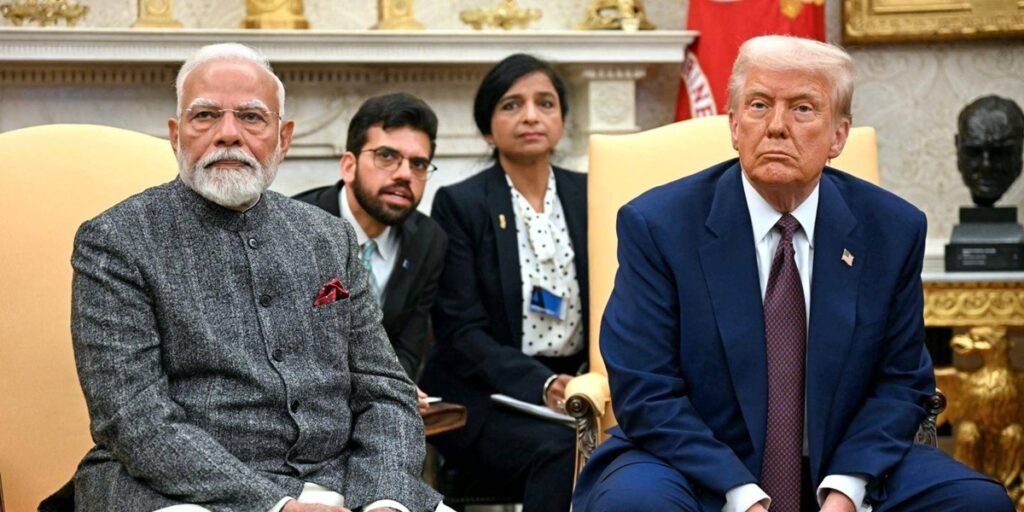
India's status as a strategic partner of the United States was one of the primary outcomes of the "America First" policy during President Trump's first term. This policy, which codified the concept of American national interest as a top priority, influenced the foundations of cooperation between the two countries in many areas, including the economy and security. Under this policy, calls for strengthening bilateral relations contributed to India adopting positions closer to Washington, even if this jeopardized the strategic balance in the region.
Economically, the US-India partnership has undergone significant changes. This renewed relationship has led to increased US investment in India and encouraged major companies to expand their operations in the Indian market. However, this cooperation quickly faced challenges. The protectionist tendencies pursued by the Trump administration in its second term, such as new tariffs, have raised concerns among Indian companies that rely on exports to the United States, leading to tensions in the trade relationship between the two countries.
Strategically, India has become a partner that provides the United States with a forward platform to counter China's growing influence in the Indo-Pacific region. However, India has continued to pursue a policy of balanced engagement with China, putting the United States in a difficult position. Thus, the relationship between India and the United States appears to be characterized by an imbalance, with India seeking the benefits of cooperation with the United States while avoiding direct conflict with its larger neighbor.
Confronting Enemies: China and Russia
President Donald Trump's "America First" policy has significantly impacted international relations, particularly the interactions between the United States and its traditional allies and adversaries such as China and Russia. While the United States has sought to reduce its role in some global issues, many of its allies have seen their strategies shift, leading to the formation of unexpected alliances with countries previously considered adversaries.
For China, the "America First" policy has led to the development of its economic and political relations with countries like Russia, with enhanced cooperation in various fields, including energy, technology, and security. With the United States withdrawing from international treaties and imposing sanctions, Beijing and Moscow have been able to strengthen their ties, giving the impression that they face common challenges arising from American policy. This cooperation could create a new environment of balance in the international system and highlight the importance of issues related to national sovereignty.
Moreover, the decline of America's commitment to democratic values and international principles has eroded traditional relationships between Washington and its allies. Some countries, which once relied on American support, have begun to consider new options. For example, countries like India have emerged as a player capable of balancing their relations with both the United States and China. The lessons learned from this rapprochement between former allies and adversaries demonstrate how international dynamics can shift in response to changes in American policies. Reflecting on these developments helps understand how "America First" influences not only U.S. foreign policy but also global relations more broadly.
The growing independence of America's allies
With Donald Trump's return to the US presidency, his administration adopted an "America First" policy that has significantly impacted international relations. This policy has prompted many of America's traditional allies to reevaluate their security and economic strategies. As a result, we have witnessed a marked increase in independence on the part of these allies, as countries sought to adapt to the new geopolitical changes brought about by Trump's policies.
For example, America's European allies, such as Germany and France, have considered how to reduce their dependence on US military imports in light of the Trump administration's mixed messages regarding defense commitments. This thinking has led to increased investment in national military capabilities and enhanced defense cooperation with other allies, such as the United Kingdom and Canada. These steps represent targeted attempts to enhance security autonomy amid growing doubts about US support for NATO.
Moreover, some Asian countries, such as Japan and South Korea, have appeared more inclined to develop independent foreign policies that go beyond reliance on US defense. These countries have begun strengthening their strategic partnerships with other countries, such as India, in an effort to diversify their strategic options and expand the scope of their alliances. These countries have increasingly sought to adapt to new markets and economic challenges that may be caused by shifts in Washington's policy.
Overall, Trump's policies highlight the ongoing need for allied states to seek opportunities to enhance their independence, underscoring that international relations are not static but constantly changing. This raises questions about how these shifts will impact the global order and the United States' position within it.
Effects of geopolitical transformations
The "America First" policy adopted by the Trump administration during his second term is considered a major factor contributing to the geopolitical shifts on the international scene. This policy has significantly influenced the formation and formulation of relations between countries, leading to a reassessment of alliances and strategic relationships. By directing resources and attention toward the American homeland, engagement with international issues has been reduced to a greater extent than was traditionally practiced by previous administrations, impacting the stability of some vital regions of the world.
One of the direct consequences of this policy is potential changes in the global alliance map, which could lead some traditional allies to move away from the United States. The increasing focus on national interests rather than collective considerations has also prompted other countries to seek new partnerships that align with their national interests. For example, European countries may seek to strengthen regional cooperation and develop independent military policies to counter threats that may arise in the absence of traditional American support.
In addition, new powers have emerged on the international scene, such as China and Russia, which have seized the opportunity to enhance their economic and military influence. These dynamics may lead to the formation of new alliances and the drawing of new maps of cooperation. It is worth noting that these changes represent a significant shift in the global balance of power, and their effects may last for many years to come.
In the face of these transformations, the importance of maintaining traditional concepts of diplomacy and dialogue cannot be denied, as states need to interact constructively despite growing geopolitical challenges.
conclusion
The "America First" policy pursued by the US administration during Trump's second term has had a significant impact on international relations. By taking radical steps, such as withdrawing from international agreements and reevaluating relations with allies, this policy has reshaped the landscape of international cooperation. The United States has adhered to the principle of putting its national interests first, which has led to increased tensions with some close allies, such as NATO and the European Union.
Moreover, trust between the United States and other countries has declined, with many governments feeling that the traditional framework of alliances and cooperation has been undermined. However, there have also been indirect effects, such as some countries being pushed to strengthen regional partnerships and rethink their defense strategies and political calculations.
As we look to the future, the question remains about how to reshape international relations within the context of American policy. Will the next administration adopt a different approach focused on cooperation and partnership, or will it continue to uphold the same "America First" policy? Allies must be prepared to adapt to these changes, and the importance of open dialogue remains to ensure the stability of international relations. In this sense, understanding the impact of this policy embodies the importance of alliances and cooperation among states for achieving global security and stability.
The serious question now facing the United States' traditional allies is: Can the United States still be fully relied upon as "the leader of the free world," or must difficult negotiations begin to seriously improve relations with yesterday's adversaries: China and Russia. This is a question with no easy or ready answers, but Trump's second term has left its allies with no choice but to confront it.

